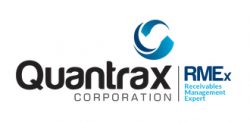RMEx Functionality
How can you work an account at a fee of 20% and make a profit? How could we address most of these challenges with the existing technologies?
Enter artificial intelligence and expert systems. “Expert systems” are computer programs that can mimic the behavior of a human expert. Artificial intelligence is a term that was created to differentiate it from “human intelligence”, which in spite of its great strengths is also associated with lapses in memory, inconsistencies, fatigue and the need for vacations! In 1990, Quantrax Corporation created a proposal for, designed and built a new system that would have artificial intelligence as its foundation changing the software landscape forever.
To understand the product and the development process, one must appreciate the difference between traditional data-based systems and expert systems (Also called knowledge-based systems). With data-based systems, we have computer programs that act on data and produce results. The data and programs are closely related, and to change the behavior of the system you must change the programs. As an example, you may have determined that a certain letter, if sent within 50 days of placement, in certain geographical areas, produces successful results. You would change your programs to generate the required letter at the correct time for the selected accounts. But what if you later wanted to expand the range of zip codes, or change the day on which the letter was sent, or target certain balances? You would need more program changes!

With an expert system, there are users who provide input. In addition, there are rules. A complex computer program called an “inference engine” takes a user’s input, looks up the rules (stored in a knowledge-base), analyzes the circumstances and then makes intelligent decisions. Compared to data-based systems, expert systems allow you to quickly change the way in which you do business by changing the stored “rules”. This does not require any programming changes! To make decisions that would compare in scope and quality to those of a human would take thousands of rules and a complex inference engine, and this is one reason that expert systems have not found their way into many commercial business applications. Expert systems, while offering great potential, are very expensive to produce and need powerful computers to run on.

RMEx allows a user to decide how they want to manage their accounts and then set up simple or complex rules to make sure that the necessary actions take place at the appropriate time. Decisions are made as the account progresses through the collection cycle, but the user controls the level of decision-making that is entrusted to the system.
Artificial intelligence allows you to build consistency into your work plans. The same condition can be handled in the same manner, regardless of the experience of the collector working the account. It can make everyone an expert!
There are some interesting secondary benefits that were derived from utilizing intelligent software.
-
Once the rules have been set up, it was not necessary for the key person to be present for the decisions to be made! The advantage of this was apparent when a key person resigned and the processes continued without any adverse impact.
-
When the rules were set up, each company was actually documenting their processes. Even in the absence of written documentation (very common in most organizations), analyzing the rules could tell us how the company managed each type of account.
-
Entire processes could be automated! This took a great deal of thought and planning, but the end result was a business process that met the corporate objectives and was not dependent on humans who made mistakes and could often display poor judgment
Do RMEx’s clients derive the benefits that were projected? YES! As the levels of automation were increased, the over-working of accounts was reduced, and more work was done with the same number of people. Fewer accounts remained “un-worked” and the quality of work done on each account was higher. If revenue per collector was a method of evaluating a collection operation, most RMEx users have enjoyed increases that exceed 30% – gains on this scale can not usually be approached by traditional data-based systems.
